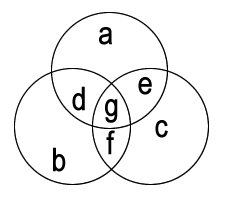Burngreave New Deal for Communities: A Case Study
Burngreave New Deal for Communities (BNDC) is a case study, to support my point in an earlier post about control.
Background Information
New Deal for Communities (NDC) was a national programme, founded in 1998. It provided financial support to 39 of the most disadvantaged areas in the UK, over a 10 year period. They staggered the start dates somewhat and hence the 2010 final evaluation. I think this slightly pre-dates the closing of the ones with a later start-up. Today NDC is long gone and largely forgotten, at least in the national debate. I shall use the national evaluation in later posts to structure my argument.
Burngreave NDC ran from 2001 until 2011 and so was one of the later ones. During the early years, I was involves as an active member of the Burngreave Community Action Forum (BCAF). Then from 2003, I was not involved for some years because of an appointment to a demanding national post, based in Manchester.
Then around 2009, I rejoined the Board towards the end of its active life, until BNDC wound up in 2011.
Here is an extract from the executive summary of the final report. It addresses NDC as a national programme:
Between 1999-2000 and 2007-08, the 39 NDC partnerships spent a total of £1.71bn on some 6,900 projects or interventions. A further £730m was levered in from other public, private and voluntary sector sources. They have developed, with partner agencies, a range of interventions, designed to support locally developed strategies that encompass the three place-related outcomes of crime and community safety, community and housing and the physical environment, and the three people-related outcome areas of health, education and worklessness.
Brief Evaluation
Burngreave it seems came third in terms of meeting the programme objectives, so don’t forget this when I criticise the programme. At the time, the revenue spend of the programme in Burngreave improved the quality of life for many residents. The question is whether these successes have been sustainable beyond the end of the programme.
This leads to my first comment. The date of final assessment for the national programme is March 2010. I have not so far found any more recent evaluation. In May 2010, a new national government formed and the two parties in the coalition have shown no interest in New Deal. An evaluation now, just three years later, might produce a very different picture. Certainly by 2020, it will be interesting to ask whether New Deal had any lasting impact at all.
In my next post, I’ll outline my overall criticism of New Deal and then in future posts pick up some specific issues from the final evaluation.
Have you had any experience of NDC? If so, what do you believe the impact has been on your neighbourhood today, three years down the road?
